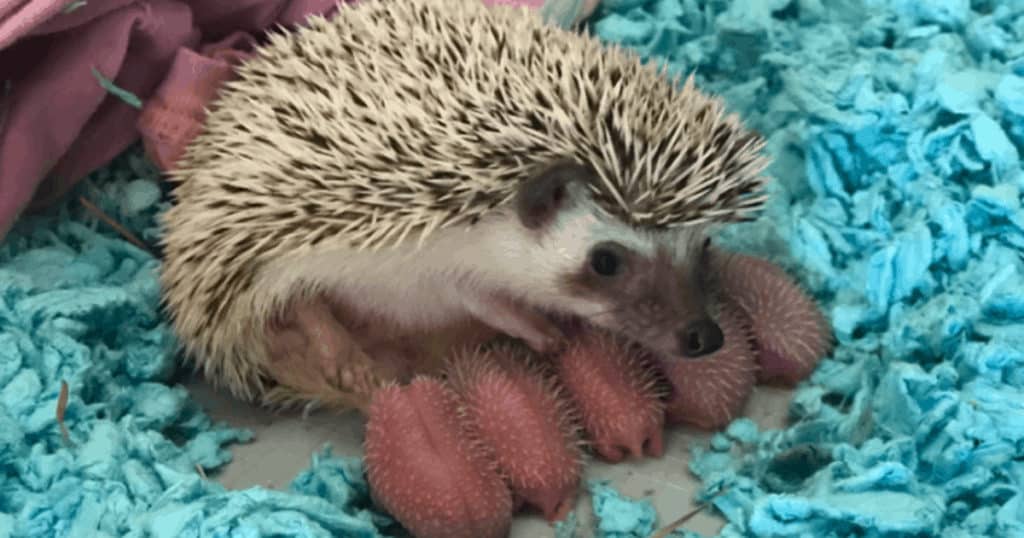
Hedgehog Baby Care: A Comprehensive Guide for New Owners
Hedgehogs, with their adorable appearance and endearing personalities, have captured the hearts of many pet enthusiasts. While these charming creatures make wonderful companions, caring for baby hedgehogs requires specialized knowledge and meticulous attention. This comprehensive guide will provide new owners with an in-depth understanding of hedgehog baby care, ensuring the well-being and thriving of these delicate newborns.
Preparing for the Arrival
Before the arrival of your baby hedgehog, it’s crucial to prepare a suitable environment and gather essential supplies.
- Enclosure: Choose a cage or enclosure that is spacious enough for the baby to move around comfortably. It should have a solid bottom to prevent drafts and provide a secure base.
- Bedding: Provide soft and absorbent bedding, such as fleece or shredded paper, to keep the baby warm and cozy.
- Heating: Hedgehogs are sensitive to cold temperatures. Ensure the enclosure has a heat source, such as a heating pad or ceramic heat emitter, to maintain a temperature of 75-85°F (24-29°C).
- Food and Water: Prepare a shallow dish for food and a water bottle with a sipper tube.
- Other Essentials: Gather other necessary items, including a small litter box, a soft brush for grooming, and a scale to monitor the baby’s weight.
Bringing Home the Baby
Once you bring your baby hedgehog home, handle it gently and minimize stress.
- Transport: Use a small, ventilated carrier lined with soft bedding.
- Acclimation: Allow the baby to acclimate to its new environment for a few hours before handling it.
- Handling: Hold the baby securely with both hands, supporting its body and head. Avoid squeezing or holding it too tightly.
Feeding and Nutrition
Baby hedgehogs require frequent feedings of a specialized diet.
- Formula: For the first few weeks, feed the baby hedgehog a kitten milk replacer formula every 2-3 hours.
- Weaning: Gradually introduce solid food, such as high-quality hedgehog kibble, around 4-6 weeks of age.
- Feeding Schedule: Establish a regular feeding schedule to ensure the baby receives adequate nutrition.
- Supplements: Consult with a veterinarian about providing calcium and vitamin D3 supplements to support bone development.
Grooming and Hygiene
Baby hedgehogs require regular grooming to maintain their health and appearance.
- Bathing: Bathe the baby hedgehog only when necessary, using lukewarm water and a mild, unscented shampoo.
- Brushing: Use a soft brush to gently remove loose quills and dirt.
- Nail Trimming: Trim the baby’s nails regularly to prevent overgrowth and discomfort.
- Litter Box Training: Introduce a small litter box filled with unscented litter to encourage the baby to use it for elimination.
Health and Well-being
Monitoring the baby hedgehog’s health and well-being is crucial for its development and longevity.
- Weight: Weigh the baby regularly to ensure it is gaining weight appropriately.
- Activity Level: Observe the baby’s activity level and behavior for any signs of lethargy or distress.
- Skin and Quills: Inspect the baby’s skin and quills for any signs of irritation, parasites, or injuries.
- Veterinary Care: Schedule regular veterinary checkups to ensure the baby’s health and receive professional advice.
Socialization and Handling
Socialization and handling are essential for the baby hedgehog’s development.
- Handling: Handle the baby gently and regularly to build trust and reduce stress.
- Socialization: Introduce the baby to different people and environments in a controlled and positive manner.
- Playtime: Provide opportunities for the baby to explore and play with safe toys and objects.
Common Health Issues
Baby hedgehogs may experience certain health issues that require prompt attention.
- Respiratory Infections: Sneezing, coughing, and nasal discharge can indicate a respiratory infection.
- Skin Conditions: Dry skin, quill loss, or skin irritation may be caused by parasites, allergies, or infections.
- Digestive Problems: Diarrhea, vomiting, or constipation can result from dietary issues or underlying health conditions.
- Neurological Disorders: Seizures, tremors, or balance problems may indicate a neurological disorder.
Emergency Situations
In case of an emergency, it’s crucial to act quickly and seek professional help.
- Choking: If the baby hedgehog is choking, gently open its mouth and remove any obstructions.
- Seizures: If the baby experiences seizures, keep it calm and avoid handling it.
- Injuries: If the baby is injured, apply pressure to stop any bleeding and contact a veterinarian immediately.
Conclusion
Caring for baby hedgehogs is a rewarding but demanding task that requires patience, dedication, and specialized knowledge. By following the guidelines outlined in this comprehensive guide, new owners can provide their precious newborns with the optimal environment, nutrition, and care they need to thrive and flourish. Remember to consult with a veterinarian regularly for professional advice and support to ensure the long-term health and well-being of your baby hedgehog.
